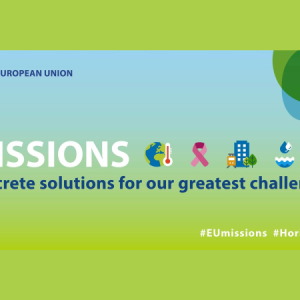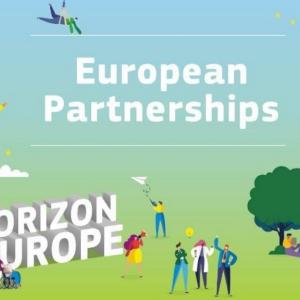A new way to bring concrete solutions to some of the EU greatest challenges with ambitious goals to deliver concrete results by 2030.
- EU Missions will deliver impact by putting research and innovation into a new role in combination with new forms of governance and collaboration, as well as citizen engagement.
- EU Missions are a coordinated effort by the Commission to pool the necessary resources in terms of funding programmes, policies and regulations, as well as other activities. They aim to mobilise and activate public and private actors, such as EU Member States, regional and local authorities, research institutes, farmers and land managers, entrepreneurs and investors to create a real and lasting impact.
- EU Missions will support Europe’s transformation into a greener, healthier, more inclusive and resilient continent.
Mission Starfish 2030: Restore our Ocean and Waters
Targets by 2030: cleaning marine and fresh waters, restoring degraded ecosystems and habitats, decarbonising the blue economy in order to sustainably harness the essential goods and services they provide.
Caring for Soil is Caring for Life
Targets by 2030: at least 75% of all soils in the EU are healthy for food, people, nature and climate. The proposed mission combines research and innovation, education and training, investments and the demonstration of good practices using “Living labs” (experiments and innovation in a laboratory on the ground) and “Lighthouses” (places to showcase good practices).
Conquering Cancer: Mission Possible
Targets by 2030: more than 3 million more lives saved, living longer and better, achieve a thorough understanding of cancer, prevent what is preventable, optimise diagnosis and treatment, support the quality of life of all people exposed to cancer, and ensure equitable access to the above across Europe.
A Climate Resilient Europe - Adaptation to Climate change
Targets by 2030: prepare Europe to deal with climate disruptions, accelerate the transition to a healthy and prosperous future within safe planetary boundaries and scale up solutions for resilience that will trigger transformations in society.
100 Climate-Neutral Cities by 2030 - by and for the citizens
Targets by 2030: support, promote and showcase 100 European cities in their systemic transformation towards climate neutrality by 2030 and turn these cities into innovation hubs for all cities, benefiting quality of life and sustainability in Europe.




